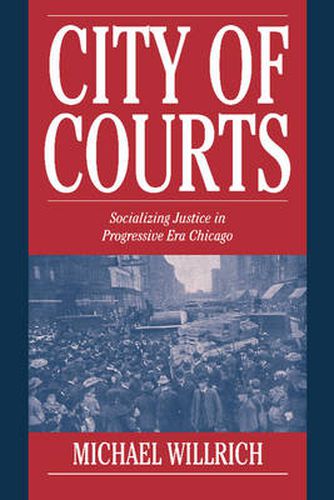Readings Newsletter
Become a Readings Member to make your shopping experience even easier.
Sign in or sign up for free!
You’re not far away from qualifying for FREE standard shipping within Australia
You’ve qualified for FREE standard shipping within Australia
The cart is loading…






What could be more ‘liberal’ than the modern idea of social responsibility for crime - that crime is less the product of free will than of poverty and other social forces beyond the individual’s control? And what could be more ‘progressive’ than the belief that the law should aim for social, not merely individual, justice? In this work of social, cultural, and legal history, Michael Willrich uncovers the contested origins and paradoxical consequences of these two protean concepts in the cosmopolitan cities of industrial America at the turn of the twentieth century. In Progressive Era Chicago, social activists, judges, and working-class families seeking justice transformed criminal courts into laboratories of progressive democracy. Willrich argues that this progressive effort to ‘socialize’ urban justice redefined American liberalism and the rule of law, laying an urban seedbed for the modern administrative welfare state.
$9.00 standard shipping within Australia
FREE standard shipping within Australia for orders over $100.00
Express & International shipping calculated at checkout
What could be more ‘liberal’ than the modern idea of social responsibility for crime - that crime is less the product of free will than of poverty and other social forces beyond the individual’s control? And what could be more ‘progressive’ than the belief that the law should aim for social, not merely individual, justice? In this work of social, cultural, and legal history, Michael Willrich uncovers the contested origins and paradoxical consequences of these two protean concepts in the cosmopolitan cities of industrial America at the turn of the twentieth century. In Progressive Era Chicago, social activists, judges, and working-class families seeking justice transformed criminal courts into laboratories of progressive democracy. Willrich argues that this progressive effort to ‘socialize’ urban justice redefined American liberalism and the rule of law, laying an urban seedbed for the modern administrative welfare state.